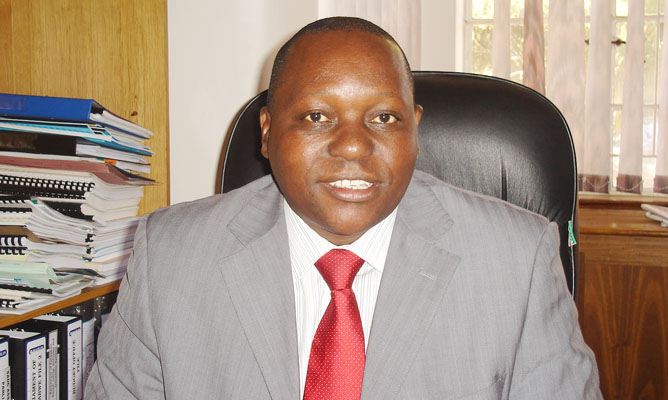
FEARS have been expressed in civil society circles that some of the conditions attached to the presentation of petitions in Parliament will make it very difficult for stakeholders to use this mechanism for the redress of public grievances.
These concerns were raised at a meeting in Harare this week to familiarise civil society organisations with parliamentary processes and procedures.
While yes some of the conditions can be used to justify the inadmissibility of some petitions, my view is that these conditions must not be used as an excuse by the public not to exercise their constitutional right of petitioning Parliament on matters that are within the law-making body’s authority. This article will try to unpack the petition process for the benefit of the public.
Section 149 of the Constitution grants every citizen and permanent resident of Zimbabwe the right to petition Parliament to consider any matter within its authority, including the enactment, amendment or repeal of legislation. The manner in which these petitions are to be presented to Parliament, and the action that Parliament is to take, is prescribed in the standing orders or the rules of Parliament.
The rules require a petition to be lodged with the Clerk of Parliament in writing or sent to the Clerk by e-mail at any time when the office of the Clerk is open and Parliament is not dissolved. In the event that a petition is received during a period that Parliament has adjourned, the Clerk shall notify the petitioner(s) of the next possible sitting day.

A petition shall be presented to Parliament by citizens and permanent residents of Zimbabwe or their representatives. In the case of organisations and juristic persons, a petition shall clearly state the names of the people or group of people they are representing and the names of the persons in that organisation and the manner in which they are funded. The petition shall be couched in respectful, decorous and temperate language.
A petition shall not be admissible if it deals with a Money Bill unless it is accompanied by a letter from a Vice President, Minister or Deputy Minister recommending that Parliament receives the petition. It shall also not be admissible if it requests Parliament to perform a function outside of Parliament’s constitutional mandate or contains the same or substantially similar information to a petition lodged by the same person, during the same session of Parliament and which has been addressed.
- Chamisa under fire over US$120K donation
- Mavhunga puts DeMbare into Chibuku quarterfinals
- Pension funds bet on Cabora Bassa oilfields
- Councils defy govt fire tender directive
Keep Reading
The Clerk shall examine the petition for compliance with the provisions of the Constitution within two working days and submit the petition with recommendations to the Speaker or the President of the Senate. The Speaker or President of the Senate shall inform the National Assembly or the Senate as the case may be, and refer the petition to a relevant committee of the House. The Clerk of Parliament shall inform the petitioner(s) of this development.
The relevant committee shall consider and decide on the best way to handle the petition without derogating from the provisions of Standing Orders. The committee will consider the petition within 26 days and present its report and recommendations to the House. The House may adopt or reject the recommendations of the committee. The Clerk shall inform the petitioner(s) of the outcome immediately upon the conclusion of the matter by the resolution of the House.
The main issue of concern relates to money bills, in particular the requirement that a member of parliament presenting a petition on behalf of citizens or permanent residents must obtain a recommendation letter from a vice president, minister or deputy minister if the petition deals with a Money Bill. A Money Bill is defined by the Fifth Schedule to the Constitution as a Bill that makes provision for the following:
Imposing, increasing or reducing a tax for the benefit of the State;
Appropriating money from, or imposing, increasing or reducing any charge on the Consolidated Revenue Fund or any other fund vested in or controlled by the Government;
Compounding or remitting a debt due to the State;
Condoning a failure to collect a tax due to the State; and
Condoning unauthorised expenditure by the Government.
The fear within civil society is that most representations to Parliament have fiscal implications, a situation that will severely narrow down the petitions that the public is able to present to Parliament. However, the characteristics of a Money Bill highlighted above clearly show that these fears are unfounded. The public can still petition Parliament on many issues without falling foul to the restrictions on money bills. Let it be understood that such legal provisions on money bills is standard practice in many jurisdictions.
Another issue of concern is the requirement for juristic persons to state the source of funding in a petition. I fully agree that such a provision is unnecessary. However, this should not deter presentation of petitions because one is not required to state the actual source funding but merely state donor funding if it is a not-for-profit non-governmental organisation.
I would therefore like to urge citizens, permanent residents and juristic persons not to be dissuaded by some of these conditions and mount petitions in Parliament in order for policy makers to address a myriad of socio-economic problems that continue to afflict the nation. It is a constitutional right that should be exercised.
Parliament is very open on the issue of petitions. I have no doubt that presiding officers will make reasonable judgments on the nature of any petitions presented to Parliament.
John Makamure is the Executive Director of the Southern African Parliamentary Support Trust. Feedback: [email protected]











